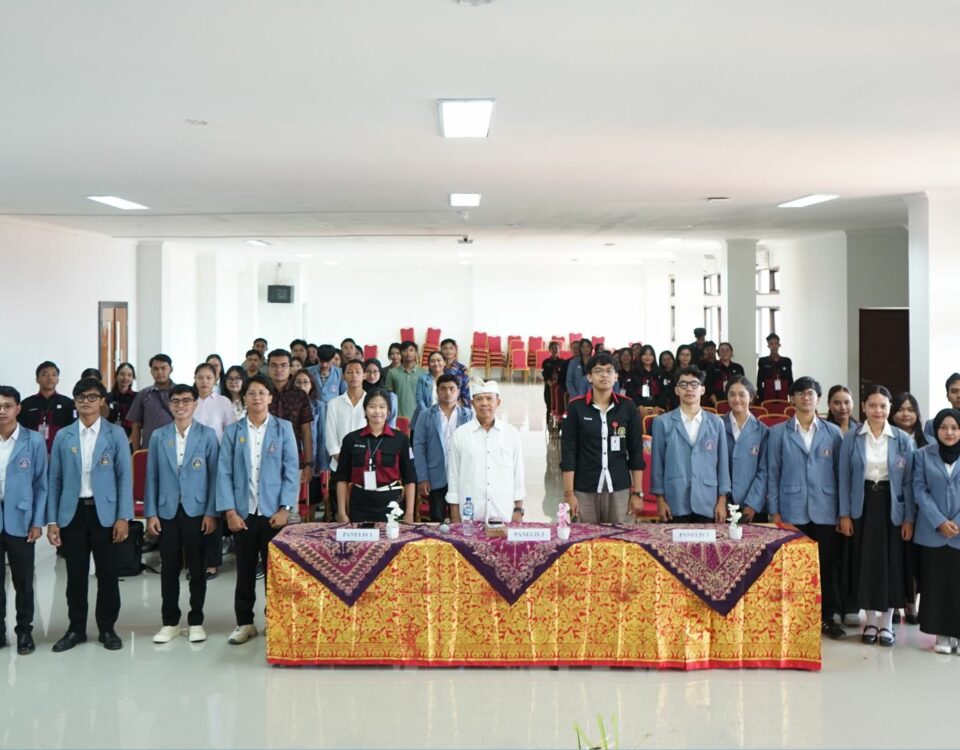The Okokan tradition is one of Bali’s sacred and culturally significant practices. Historically, this tradition was performed only during specific events, such as during disease outbreaks or crises (grubug) in Kediri Village. However, over time, this tradition has begun to be commercialized as part of the village’s creativity economy. Sekaa-sekaa (community groups) in Kediri Village now perform the Okokan Tradition at different events throughout Bali, leading to the gradual desacralization of this once sacred ritual.
Recognizing the challenges posed by this shift, a team of students from Ganesha University of Education (Undiksha), participating in the Student Creativity Program of Social and Humanity Research (PKM-RSH), conducted a research project to explore the desacralization and commercialization of the Okokan Tradition and its role in supporting Bali’s tourism industry. The research team comprised Pande Made Dwi Suci Wulandari, Gede Pasek Maha Putra, Ni Luh Gede Putri Maharani, and Ni Putu Yuliani, Ni Made Linda Herawati, under the guidance of Dr. I Gede Astawan, S.Pd., M.Pd.
The study utilized a descriptive qualitative research method, incorporating various data collection techniques, including observation, interviews, literature reviews, and documentation studies. The literature review was based on previous research to provide a solid foundation for understanding the impacts of the decentralization and commercialization of the Okokan Tradition on Bali’s tourism sector. The research aims to explore the nature of the desacralization and commercialization processes within the tradition and assess the effect these changes have on Bali’s tourism industry. By shedding light on this transformation, the research seeks to offer valuable insights for maintaining cultural integrity while supporting the growth of the creative economy.






